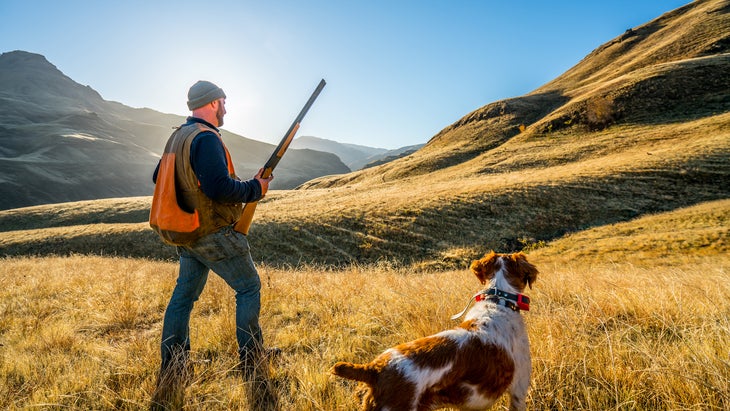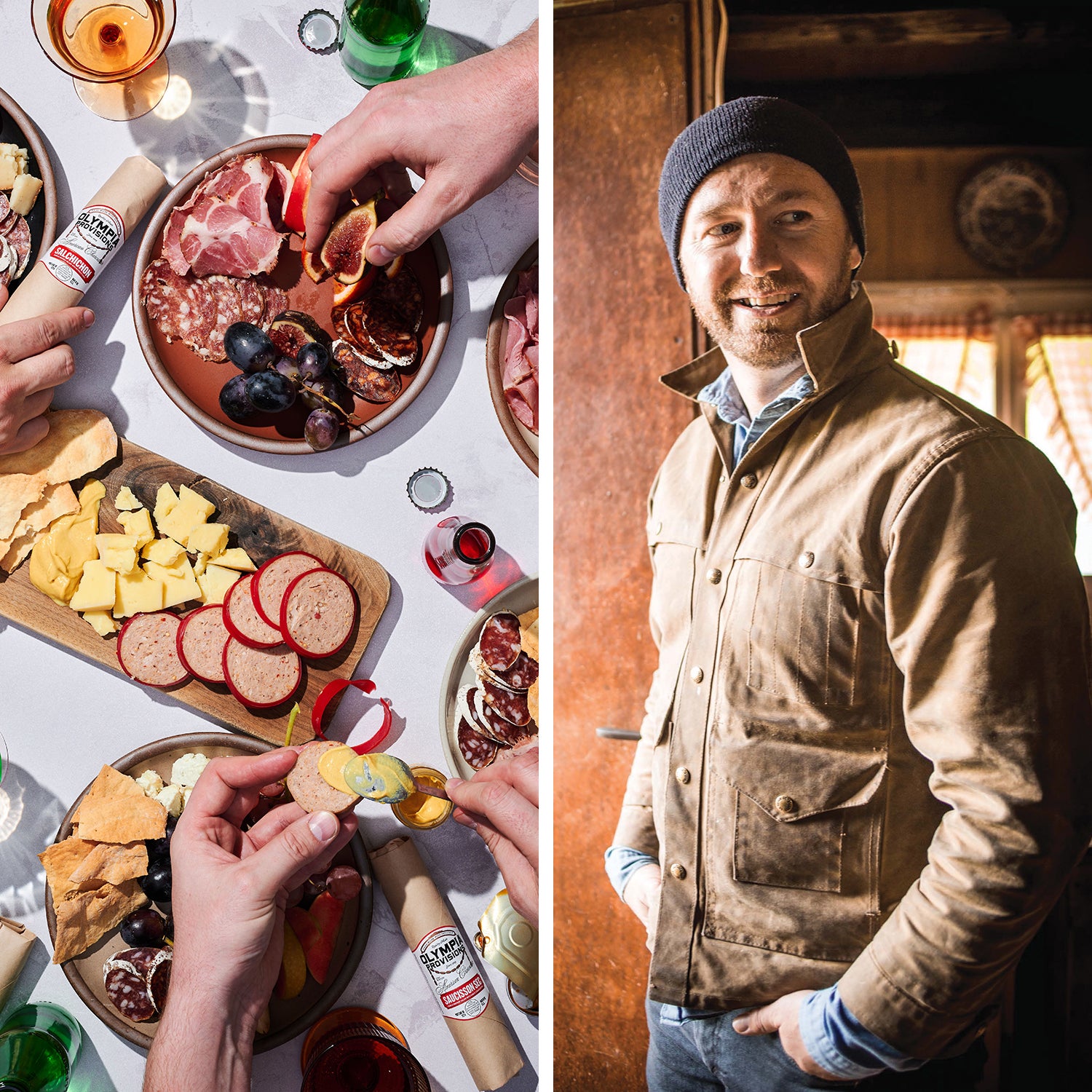In another life, Elias CairoтАФa 45-year-old charcuterie expert and the owner of Olympia Provisions, a groundbreaking restaurant and sausage-making operation in Portland, OregonтАФwas on a path to becoming a professional snowboarder. He was raised in Sandy, Utah, about 15 miles from Alta, and his go-for-it attitude landed him a Burton sponsorship.
Life, however, has a way of derailing plans. When Cairo was 15, his father, John тАЬYannisтАЭ Cairo, passed away. John had emigrated from Greece in 1962, still in his twenties, and his dream was to carve out a life in the U.S. while drawing on the customs of his native country. To that end, he created a Greek-inspired agricultural oasis in the middle of Utah.
тАЬWe raised our own meat, had gardens, preserved everything, had beehives, and made our own wine and liquor,тАЭ Cairo says. тАЬGrowing up, I was just with my dadтАФif he was cooking, I was cooking. If he was gardening, I was gardening.тАЭ They also hunted to help fill the family larder. His parents owned two Greek-American restaurants: Queen One and Queen Two, both in the town of Murray, just south of Salt Lake City.
A few years after losing his dad, Cairo told his mother, Karen, that he was through with snowboarding and wanted to be a chef. Culinary school wasnтАЩt an optionтАФtoo expensiveтАФbut an apprenticeship was. With help from an aunt, Cairo was put in touch with Annegret Schlumpf, the chef of StumpтАЩs Alpenrose Hotel in Wildhaus, Switzerland. Schlumpf had one question for Cairo: How soon can you get here?
Cairo sold his snowboard and Subaru, then went to the library to learn everything he could about the Alpine village of Wildhaus. He discovered that itтАЩs famous for cheese, charcuterie, and skiing. Within two weeks, he was standing at the front door of the picturesque hotel, partway up the slopes of the Gamsalp Mountain ski resort. He didnтАЩt speak the local languages, but that didnтАЩt matter: he was industrious, eager to learn, and ready to work.

The surprises started coming fast. On CairoтАЩs first day, he walked into the cooler and saw a huge ibex hanging there. тАЬI was like, What in the world is going on here?тАЭ he says. The restaurant, it turned out, processed wild gameтАФibex, marmot, chamois, rabbit, and moreтАФfor valley residents.
Cairo already knew how to field-dress game, including elk, deer, and pheasant. But the precision and skill demonstrated by the Alpenrose butchers were pure artistry, and the craftsmanship fascinated him. A transition began when he was temporarily assigned to the butcher station after injuring his hand in the kitchen. тАЬI got to hang out with all the butchers, and I thought, This is so fun,тАЭ he recalls. тАЬIt was better than cooking.тАЭ
Cairo still had to complete his kitchen apprenticeship, but he found ways to work with the butchers on the side. He spent just shy of five years at the Alpenrose, apprenticing under chef Schlumpf. During that time, he learned to speak Swiss German and came away with expertise he probably wouldnтАЩt have picked up in the U.S. When he returned home in 2003, he saw an opportunity. He imagined a restaurant with a USDA-approved meat plant next door; his sister, Michelle, believed in his vision and became an investor.
Cairo opened Olympia Provisions in 2009, and it has since expanded to five restaurants in Portland, with a much larger facility processing more than a million pounds of pork a yearтАФeverything from p├вt├й to pancetta. HeтАЩs a passionate advocate for a better and more humane meat industry, and for teaching both providers and consumers that good food doesnтАЩt happen fast.
тАЬIf you make something special, you canтАЩt rush it,тАЭ he says. тАЬThe American meat industry is built on margin and speed. ThereтАЩs nothing special or quality about it.тАЭ
To underscore his point, Cairo often refers to a story about Bueger Stump, a co-owner of StumpтАЩs Alpenglow, who has become a close friend. Mounted in StumpтАЩs home are 12 sets of antlers, collected from a single elk he brought down after observing it for more than a decade. That, says Cairo, is the very definition of respect.
Ethical hunting remains a touchstone for Cairo. He heads for the field or forest when he needs to recharge and reset, and hunting serves as a reminder of how close we can and should get to our food to adequately appreciate it as a gift from nature.
Cairo brings this same spirit to The Game Show. Over the course of six episodes, he combines his love of hunting and the outdoors with techniques for cooking wild game. He teaches viewers about rabbit, duck, quail, wild turkey, and venisonтАФhow to break them down, and how best to utilize these meats in savory dishes that can be cooked over an open fire or on the grill. For viewers who donтАЩt hunt or canтАЩt buy game, Cairo offers alternatives, like substituting a whole chicken in a recipe for rabbit cacciatore.
The key is to find beauty. For Cairo that was once snowboarding; then it was immersing himself in the culture of the Swiss Alps. Now itтАЩs making and enjoying the highest quality meats. One thingтАЩs for sure: whatever heтАЩs doing comes back to the nourishing simplicity of hands-on fun.


